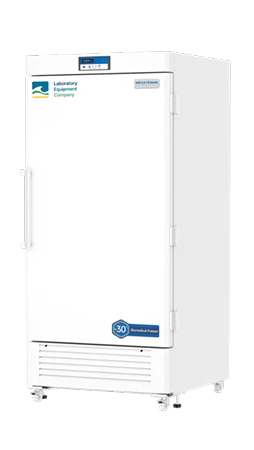HEPA filters play a crucial role in maintaining air quality by capturing microscopic particles such as dust, pollen, and bacteria. If you're wondering what is a HEPA filter, how long it lasts, and how to maintain it, this guide will provide all the essential information.
What are HEPA and ULPA filters?
HEPA (High-Efficiency Particulate Air) filters are designed to remove at least 99.97% of airborne particles as small as 0.3 microns. ULPA filters are designed to remove at least 99.99% of airborne particles as small as 0.3 microns. These filters are commonly used in BioSafety Cabinets, Laminar Flow Cabinets, Clean Benches, and Robotics Enclosures for personnel protection, product protection, and environmental protection from contamination. HEPA and ULPA filters are also found in air purifiers and HVAC systems in laboratory and medical environments to reduce and control the risk of contaminants in the room.
How long do HEPA filters typically last?
The HEPA filter lifespan varies depending on usage and environmental conditions. On average:
- Standard residential air purifier HEPA filters last between 6 to 12 months.
- HEPA filters in commercial or industrial HVAC systems may last 1 to 3 years before needing replacement.
- Medical and laboratory-grade HEPA filters typically require replacement every 6 to 12 months due to higher air purity requirements.
- HEPA filters in a BioSafety Cabinet or clean air containment cabinet may last 7 to 15 years.
What factors influence the lifespan of HEPA filters?
Several factors affect how long a HEPA filter lasts, including:
- Air quality: Higher levels of pollutants reduce filter lifespan.
- Usage frequency: Continuous operation leads to faster clogging.
- Environmental conditions: Humidity and temperature changes can impact efficiency.
- Filter type: Some HEPA filters are built for longer durability than others.
- Pre-filters: Using a pre-filter in an Animal Care setting can extend the HEPA filter's lifespan by capturing larger dander and particles first.
- The design of the plenums and increased ability of the motors in a safety cabinet to handle an increase in pressure drop of more than 300% across the filter without reducing total air delivery more than 10%, maximizes filter life in specific brands of BioSafety Cabinets.
How do I know if my HEPA filter needs replacing?
Signs that indicate it's time to replace your HEPA filter in your BioSafety cabinet include:
- Annual certification by the certifier is the most accurate indication that it is time to change you HEPA filters in your BioSafety cabinet.
- Reduced airflow or weaker performance in air filtration and the equipment
- Indicator lights and airflow alarms on the equipment control panel signaling a filter change.
Can you clean a HEPA filter instead of replacing it?
HEPA filters in Clean air containment equipment are not washable. HEPA filters in BioSafety cabinets are considered contaminated and require proper professional decontamination to access.
Do HEPA filters lose effectiveness?
Yes, HEPA filters gradually lose effectiveness as they become clogged with particles. A dirty filter can restrict airflow and reduce filtration efficiency, making timely replacement essential for optimal performance.
How to Extend the Lifespan of Your HEPA Filter
To maximize the HEPA filter lifespan, follow these tips:
- Follow annual certification protocols per NSF 49.
- Ensure a clean laboratory environment.
- Minimize storage of unnecessary items within the BioSafety cabinet and Clean Bench work area.
- Keep windows and doors closed to reduce outside pollutants.
- Monitor cabinet performance with a visual check of the magnehelic or minihelic gauge and/or Airflow sensor.
- Ensure proper placement of clean air containment equipment in the lab.
- Use pre-filters to capture larger particles before they reach the HEPA filter in Animal Care environments.
Conclusion
Understanding what a HEPA filter is, how it functions, and how long it lasts helps ensure effective air filtration and optimum performance and extended life cycle of laboratory equipment. By following EH & S, GLP and/or GMP maintenance best practices, you can extend the HEPA filter lifespan and maintain optimal air quality in your workplace and laboratory.




